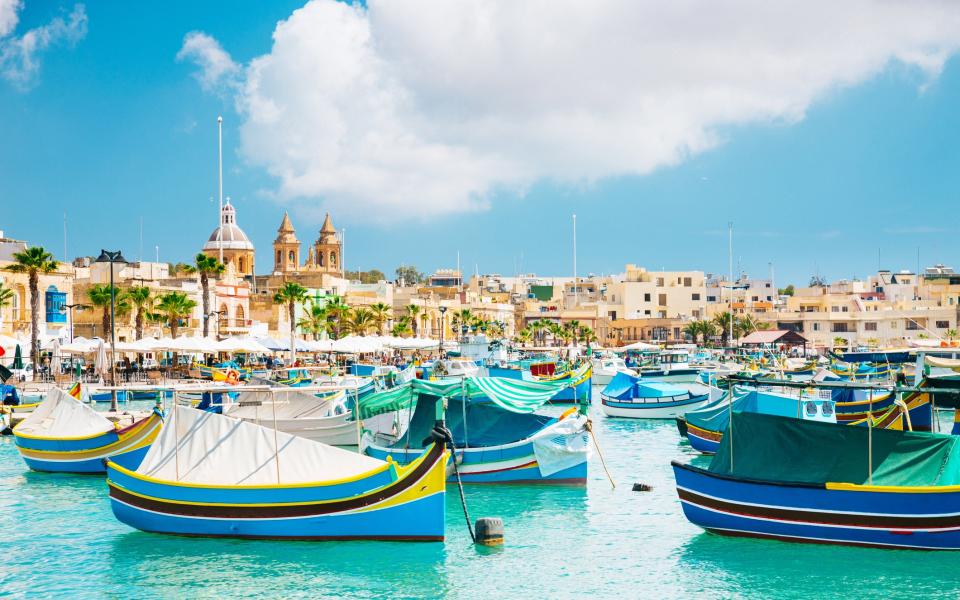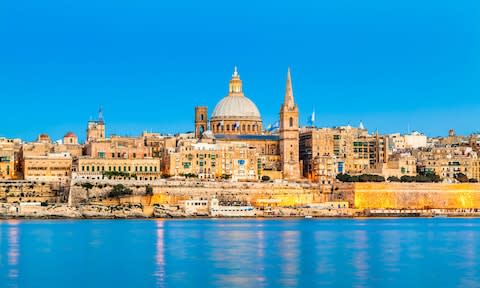How conservative Malta became Europe's top LGBTQ destination in under a decade

In the first edition of my guidebook to Malta published in 2010, I wrote: “Malta is conservative... Attitudes to women, race, homosexuality and the disabled are all similar to those in Britain a few decades ago.” It was the only country in the Europe (excluding the Vatican City), and one of just two in the world, not to allow divorce, and I felt obliged to warn gay couples to be discreet.
Just eight years later, as I prepare the fourth edition of the book, Malta has undergone a dramatic shift. Divorce is now legal, as are civil partnerships and gay marriage, and Malta has just topped the Europe Rainbow Index for LGBTQ-friendliness for the third year running.
It’s an astonishing compression of the usual process of social change. One that has taken even the Maltese – perhaps especially the Maltese – by surprise.
It really started in 2011 with a referendum on divorce. The prime minister at the time, Dr Lawrence Gonzi, a Nationalist, was in no doubt which way Malta’s 98 per cent Catholic, family-oriented electorate would vote and campaigned accordingly. He was amazed - though not, I suspected when I interviewed him a few years later, particularly displeased - when the vote went in favour of the legalisation of divorce.
The leader of the ‘Yes’ campaign, Jeffrey Pullicino Orlando, said at the time that the vote brought Malta “into a new era where the state and the Church are separate,” a remark that proved prophetic.

Just three years later, civil partnerships were introduced, rapidly followed in summer 2017 by same-sex marriage. The church protested loudly but only one MP voted against it.
Malta has gone further too. It has become the first European country to outlaw ‘gay conversion therapy’ and you can now change gender on a Maltese passport – to the opposite sex, or a non-committal X – through a simple administrative process.
As for women, while in 2010 I was told that a Maltese woman’s place was primarily in the home, and women often felt ‘invisible’ in business meetings, now more than a third of households rely on a woman as the main breadwinner and some 60 per cent of new graduates are female. Whilst there is still some way to go, actress and activist Pia Zammit says “it is getting better”. There are more women in top jobs than ever before (including a woman president) and numbers continue to rise.

Attitudes to race and disability are also changing. “Disability is not the taboo it was ten years ago,” says Joseph Mizzi, former head of Malta’s public broadcasting service and ex-media adviser to the Nationalist Party, and racism is on the wane.
In 2010, 97 per cent of Malta’s residents were born in Malta and the islands were more used to sending workers abroad than receiving economic migrants. As a Mediterranean island nation with a history of fighting the Ottoman Turks, Malta initially struggled with the arrival of desperate people from North Africa - particularly Muslims - but now migrants are largely welcomed, and helping fuel a construction boom.
So what has led to Malta’s rocketing into the 21st century?
It is growing up, says Zammit. “We are a baby nation, only independent since 1964, and used to having rules to follow – colonial governments, the Catholic Church, politicians we turn into Gods. Since joining the EU we have had to think a little bit for ourselves.”
Malta was always more liberal inside than anyone dared to say, suggests Mizzi. EU membership, the internet and the loss of trust in the church through paedophile priest scandals have all contributed to the speed of change, he says, but most of all, Malta just needed to give itself permission to be more open.
He adds: “This is a small place. Everybody knows about everyone. We knew if a man had a boyfriend. We just couldn’t talk about it... The divorce referendum was the first push of the dominoes – then it all started to come out.”

There is, however, one looming elephant in the progressive room: Malta is the only EU country where abortion remains illegal under any circumstances. Several hundred women a year are believed to travel to the UK and Italy to get abortions while some are done illegally in Malta.
“Abortion is a red button issue,” says Mizzi, and Zammit agrees. Herman Grech, online editor of the Times of Malta, recently told the BBC: “Abortion is not only a taboo here, there's almost a fear of using the ‘A’ word.”
Grech has nonetheless written a play about abortion, De-terminated, that doesn’t take sides but aims “to find out if the issue of abortion could ever be discussed without name-calling and hysteria”. It played to full houses in a small auditorium in the capital last month.
Grech doesn’t think Malta will legalise abortion in his lifetime, and even pro-choice Zammit says the nation isn’t ready for this yet. But less than a decade ago many said the same about divorce. So who knows what will happen before the fifth edition of my guidebook.

